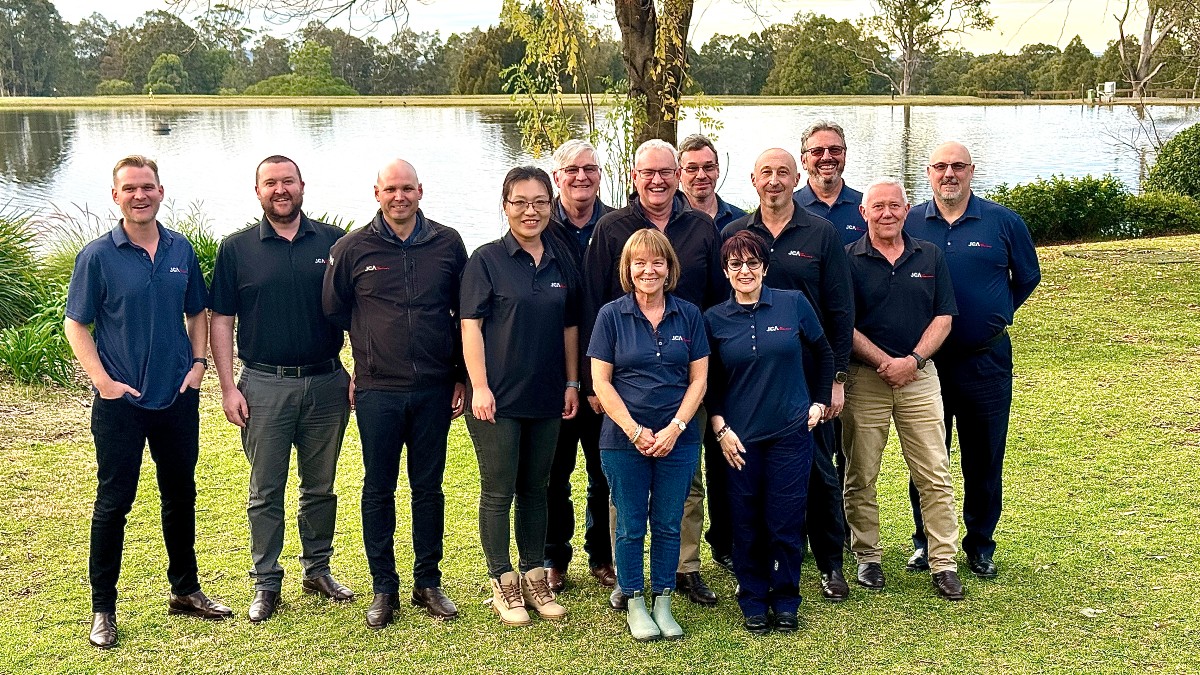Feeling stressed? Why workplace mental health coaching could be just what you need
When Colin Boswarva, a director at JCA Lift Consultants, first received the call about workplace mental health coaching his NSW-based lift consultancy was operating amid a period of large workloads and high stress levels.
“We’re running a fairly successful business,” says Colin. “And the workload is very heavy.”
Workplace mental health coaching, which, among other things, helps business leaders effectively manage psychosocial risks such as high workloads and stress levels resonated with Colin straight away.
“We work in a very high-stress environment. Everything is a deadline,” he says.
In addition, Colin says, he manages a team with many different dynamics. “They’re all very different,” he says. “I’ve got some people who come from sales backgrounds, others who have come from very technical backgrounds. And now we’re all trying to work together.”
Through coaching, Colin says he was able to identify small things to help him effectively manage the psychosocial risks in his organisation.
“While the workload is still heavy, and the business is expanding, I feel more in control,” Colin says. “I don’t feel the stress or overload like I did before.”
“A good example of this,” Colin says, “was when one of my guys needed help with something. [My coach] Anna said to me, ‘Well, what are you going to do?’ and I said, ‘Well, I’m going to show him how to do it’. She said, ‘No, no, no.’ She cut me off straight away,” Colin laughs. “She said, ‘Sit with him, take that extra time. Guide him to do it. Stop being Superman.’”
“It’s such a small thing,” Colin says, “But ultimately, I’d taught all my team to come to me every time they had a problem.”
Now, Colin says, he takes more time to help his team take ownership, and be more self-sufficient, which is saving him time in the longer term, and addressing the risk of low job control.
Colin’s coach Anna adds, “So often, individuals in leadership positions feel alone in shouldering the full burden of everything that needs to be done in small business, even though they surround themselves with highly motivated and skilled people.”
“The skill of ‘creating room for others’ can be difficult, and unfamiliar,” she says. However, it’s an acquired skill that has really set Colin up to thrive.
“It’s probably why I can handle more now,” he acknowledges. “I’m not nearly as stressed as I was a year ago.”
“It’s funny, it’s only a slight tweak in approach on how to handle things and it’s made a huge difference.”
Moreover, Colin acknowledges, his team have noticed the difference that coaching has made, with their own stress levels coming down.
“Employees really benefit from understanding what matters to their boss,” says Anna. “It allows them to celebrate their efforts, and maximise their sense of achievement, and that can bring in a sense of achievement for everyone involved.”
Again, Colin acknowledges that it’s just been about making small tweaks. He acknowledges that in the past where he would have said, “You’ve just got to get the job done” he’s now taking time to consider his approach, provide ongoing support and communicate more with his team as needed.
“A happy team goes a long way to making your business successful without focusing on the financials,” Colin says.
Coach Anna recognises that Colin’s willingness to share his experiences and perspectives really helped him get the most out of coaching.
“He was willing to try ‘something different’,” Anna says. “And that allowed us to better understand his team and calibrate our approach to craft solutions that worked with their unique needs, hazards, risks and constraints.”
“For many small businesses, it’s hard to find time to think and reflect,” Anna says. “Having a document like the psychosocial code of practice, to refer to as a starting point, allows them to identify their own unconscious strengths as well as some potential blind spots.”
Recognising the benefits of having open conversations about mental health and wellbeing, Colin shared his experience with his team at their annual conference in June. “We actually had a brief open forum about mental health,” Colin says. “We hadn’t done it before.”
Colin says that the open forum allowed people the space to talk about mental health and wellbeing in the workplace. And, while Colin acknowledges that the forum won’t have resonated with every staff member, he was pleased to receive positive feedback from others. “One of the younger guys said, ‘It’s amazing. Ten years ago, we would never have been in a room like this talking about this.’”
And for Colin, that forum extends to the way he interacts with his team. “I was always there for them,” he said. “But now I’m more open to say, ‘if you need me, if we need to go and have a cup of coffee, we can do that’. I feel much more supportive of them now,” he says.
Learn more about Workplace Mental Health Coaching here.
3 key takeaways on workplace mental health coaching
- “Just do it” – “Workplace coaching isn’t something I would ever have thought about doing,” says Colin. “But now after I’ve done it, I want to keep doing it … because it’s made such a big difference to our business.”
- It makes you a better leader – “Coaching has made me a better leader as well as a supportive leader,” Colin says. “I’ve found my mind slows down a bit more now, and I’m able to assess things in a calmer manner.”
- It’s about more than mental health and wellbeing – “It wasn’t just about mental health,” Colin says. “Anna’s knowledge of senior level management was exceptional … I felt a connection straight away. She would talk about the tasks and things like that with an understanding of what you have to deal with. I came out of it with fantastic ideas and different ways to handle situations within the business as well.”



